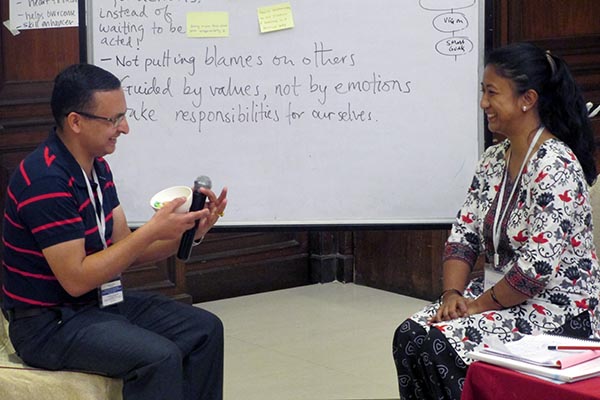
Training Trainers to Empower Cookstove Entrepreneurs
“Empowerment is more than skills and knowledge — it’s realizing one’s own self-worth and ability to perform more than what we think we can.” This is what one participant in the Empowered Entrepreneur Training Program learned from the experience.
Women play a critical role in the cookstove value chain. As primary users of household energy products such as cleaner cookstoves, women can catalyze the market as micro-entrepreneurs and distributors of clean energy technologies. But first, they need proper support to develop and grow into successful entrepreneurs.

Through the USAID-funded Developing a Sustainable Cookstove Sector project, Winrock International, in partnership with Johns Hopkins University and the Visionaria Network, is rolling out Empowered Entrepreneur Training Programs. The programs use the “Empowered Entrepreneur Training Handbook” curriculum, which builds key business, agency-based empowerment and leadership skills; helps women create and focus on their goals; and prepares them to take advantage of opportunities when they arise.
The first program included a five-day in-person training of trainers from Kenya, Nigeria, Tanzania and Uganda. Dr. Anita Shankar and Genevieve Smith, “Empowered Entrepreneur Training Handbook” authors, led that program in Nairobi, Kenya, last August. The trainers it certified have already trained more than 600 energy entrepreneurs throughout East Africa and Nigeria.
Building on the momentum, a second program is underway, including an in-person training of trainers in Bangalore, India, in April. Participants in that program — who hail from India, Bangladesh, Nepal and Indonesia — are completing a six-week practicum that includes a certification exam, homework exercises and practice trainings. Once certified, they will roll the training out to hundreds of additional entrepreneurs throughout South and Southeast Asia.
The two programs combined have produced 47 trainers from 19 organizations. Winrock is collecting data from both training roll-outs to provide additional insight into the business and social impacts of the curriculum.
Related Projects

